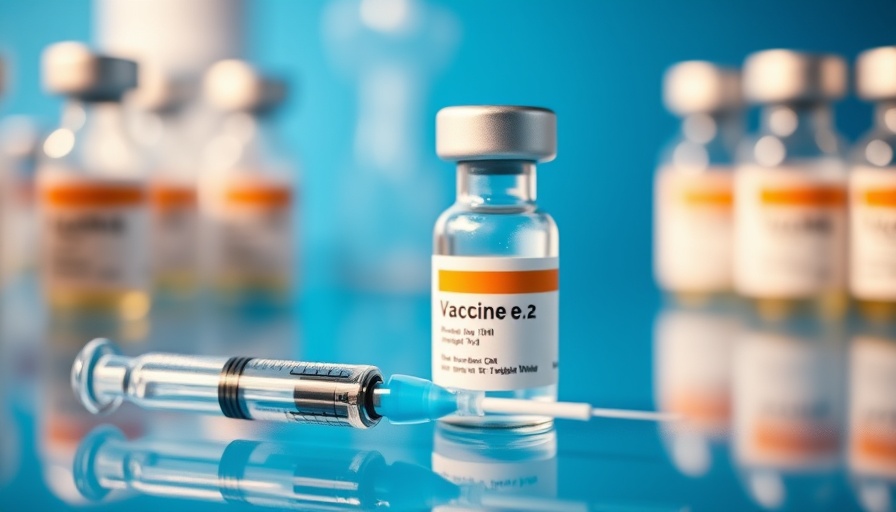
14 Million Infants Lack Necessary Vaccinations
In a compelling report by the World Health Organization (WHO) and UNICEF, it has been revealed that over 14 million infants worldwide have not received essential vaccinations, endangering their health and wellbeing. While the past year has seen modest improvements in overall childhood vaccination rates, significant gaps remain, particularly among the most vulnerable populations.
The DTP Vaccine: A Key Indicator of Global Health
According to the data, approximately 89 percent of infants globally received at least one dose of the diphtheria-tetanus-pertussis (DTP)-containing vaccine. This reflects a slight increase compared to previous years, with roughly 115 million infants now immunized. However, a troubling 14.3 million children—termed "zero-dose"—have received no vaccinations at all. This figure surpasses the 2024 targets and highlights a critical area of concern as we approach the Immunization Agenda 2030 goals.
Impact of Conflict on Immunization Efforts
UNICEF experts point out that ongoing conflicts and humanitarian crises exacerbate the vaccination crisis. In conflict-affected regions, even where healthcare wiring exists, achieving robust vaccination coverage proves challenging. Notably, countries grappling with such conflicts harbor half of all unvaccinated children, indicating the urgent need for integrating immunization services in humanitarian responses. The rise in unvaccinated children from 3.6 million in 2019 to 5.4 million in 2024 within these nations underscores the impact of instability on child health.
Challenges and Opportunities Ahead
Beyond the DTP vaccine, there is a glimmer of hope in other areas of immunization. For instance, recent data has shown a noteworthy increase in human papillomavirus (HPV) vaccine receipt among adolescent girls, jumping from 17 percent in 2019 to 31 percent in 2024. Similarly, measles vaccinations also saw improvements, with 84 percent coverage for the first dose.
Despite these hopeful trends, UNICEF Executive Director Catherine Russell warns that millions continue to live without the essential protections that vaccinations provide. She emphasizes, "No child should die from a disease we know how to prevent," calling on nations to prioritize the healthcare infrastructure needed to ensure that every child receives crucial vaccinations.
What Can You Do?
Awareness is the first step towards action. Parents, healthcare providers, and policymakers must collaborate to advocate for vaccinations, especially in regions where access is hampered by conflict or misinformation. If you're interested in helping, contact us for more details on how you can contribute to expanding immunization efforts in your community.
 Add Row
Add Row  Add
Add 




Write A Comment